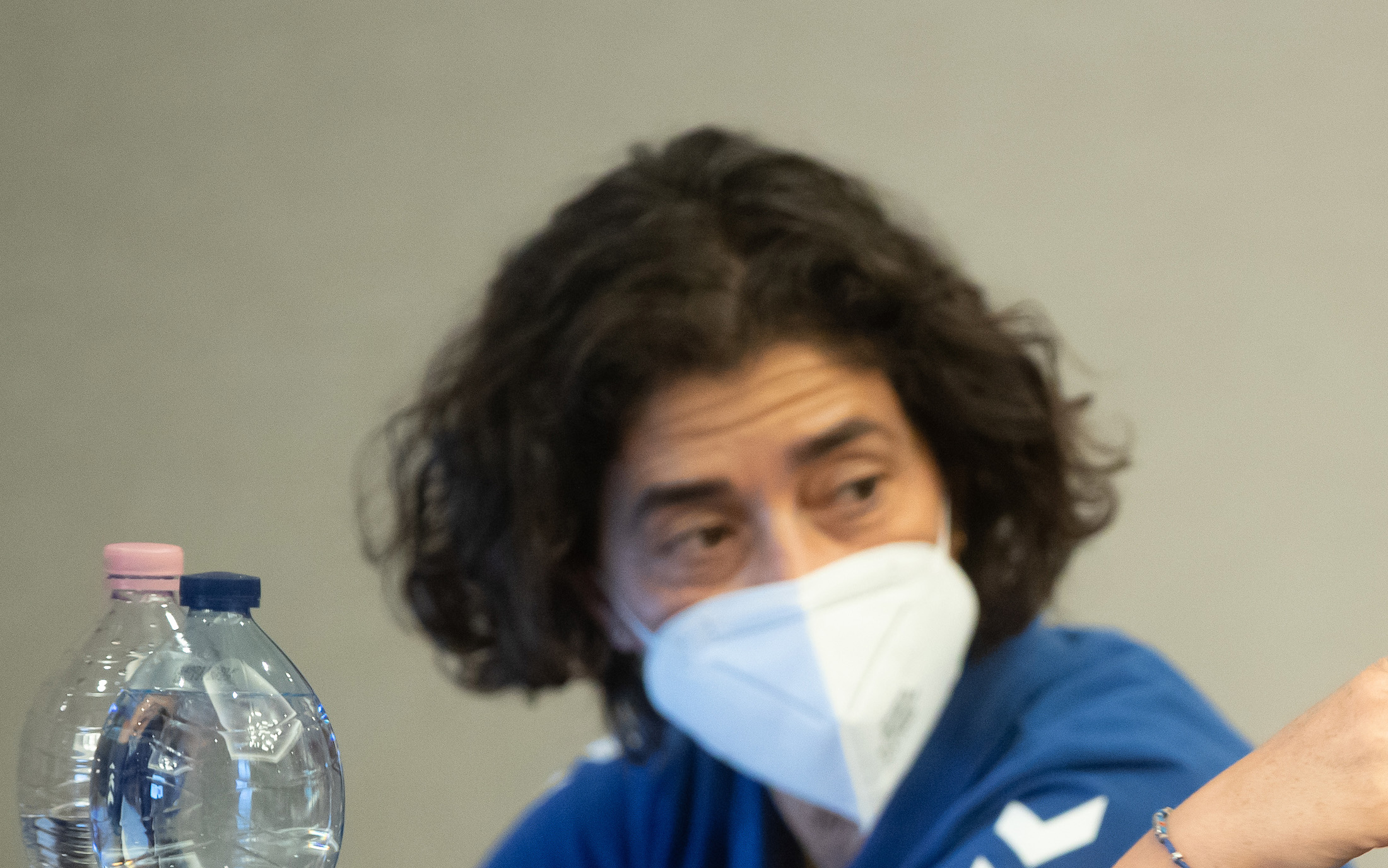The teams bought in into the new wave of analysing handball and are now using data to improve their chances to win a medal.
“We know that plenty of teams are trying to use the data to improve their players. Yes, it is a competition for the national teams and the time is quite limited for them, however everything falls together,” adds Manchado.
One of the key aspects of the EHF EURO 2022 for the contenders is using data to help players get much-needed rest during the games, so seeing when one goes into the red, tapping into their energy resources is crucial.
France’s Nikola Karabatic played only 75 of the 180 minutes in the preliminary round, getting ready for tougher games in the main round. Not reaching his top form against Russia, Lithuania and Slovakia, the top goal scorer of the EHF EURO 2020, Sander Sagosen, played only 107 minutes for Norway. Mikkel Hansen’s workload of 49 minutes in the preliminary round will surely get higher in Denmark’s next matches.
“Teams have understood how important rest is at this point of the competition and they can see directly, using the data, which is now available, when their players need a rest. Therefore, the data points which are measured can only improve the quality of handball in such a tournament,” adds Manchado.
With teams buying into the strategy, what about the fans?
“They are also interested in data, especially the speed of the shots, measured by the sensors in the iBall. It is always interesting to see the sheer power witnessed during the time in which the balls travels from the hand into the goal translated into numbers. This can really change the experience for the average fan,” says the member of the EHF Methods Commission.
Such a development would have been impossible to grasp a decade ago, but data is now here to stay in handball and it can only help develop the sport in the next years. With teams starting to focus more and more on marginal gains, the limelight will surely be focused on this field.
“The EHF EURO is the most competitive handball competition in the world, with the difference between the teams being always quite small,” Manchado says.
“Therefore, it is quite normal for them to try and beat their opponents with those details that seem insignificant but carry a lot of importance. Bits and pieces of data can be the difference between a win and a loss.”


 This research is crucial to the development of handball because it can modify training methods and help the players both improve their qualities and enhance their stamina
This research is crucial to the development of handball because it can modify training methods and help the players both improve their qualities and enhance their stamina





